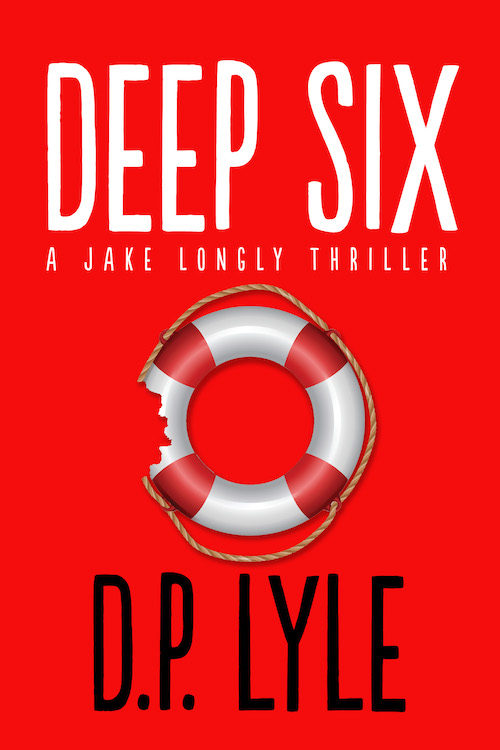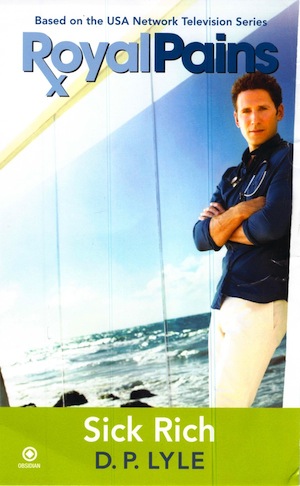Probably. Likely. Not to mention that getting away with any crime requires a healthy dose of luck.
Professor Wesley Vernon of Huddersfield University agrees. To commit the perfect crime he says you must “get as far away as possible from the crime scene” and “pay someone to pay someone to pay someone to do it for you.”
And even these tricks are not likely to work. Bad luck being what bad luck is.



























James Pierson
April 28, 2015 at 8:38 am
While I don’t doubt the value of forensics to criminal investigation, in light of the FBI’s admission that hair sample analysis has led to lots of miscarriages, one might be tempted to say that Professor Vernon is being over optimistic. As this link to an article carried by The Intercept demonstrates, blood spatter analysis, bite marks, even good old trusty DNA can be questioned in some circumstances.
LikeLike
D.P. Lyle, MD
April 28, 2015 at 1:17 pm
That’s why there is a move afoot to standardize all forensic testing and decide what is real and what is junk and then set standards. Big job but it is moving in the right direction—slowly.
LikeLike
Cheri Vause
April 30, 2015 at 12:41 pm
You happen to be one of my heroes, Dr. Lyle. I’ve used your information in my books, and will continue to do so. In writing, I like the notion that a truly stupid person can beat the best and brightest in the labs and investigators in stories, and some lumbering detective can come along and finally put it all together, but to have it happen in reality is disconcerting. Standardization is not only a wonderful idea, but a must.
LikeLike
D.P. Lyle, MD
April 30, 2015 at 5:44 pm
Cheri—thanks for your kind words. And lumbering detectives are the stuff of fiction. Even Harry Bosch lumbers into trouble at times.
LikeLike
James Pierson
April 28, 2015 at 8:39 am
Sorry, forgot to include the link in my earlier post. Here’s The Intercept article here: https://firstlook.org/theintercept/2015/04/24/badforensics/
LikeLike
Pat Marinelli
April 29, 2015 at 8:49 am
So what I need to do is place my crime in a small town with a budge that can’t afford forensics so I can write the perfect crime. Will that work for a writer?
LikeLike
D.P. Lyle, MD
April 29, 2015 at 9:23 am
True. Or set it several decades ago before a lot of the current techniques like DNA even existed.
LikeLike
James Pierson
April 29, 2015 at 10:11 am
Sorry to sound a note of scepticism again, but I just don’t buy this cosy view that Professor Vernon has of forensics. Putting aside the issues surrounding some of the techniques themselves, as someone with various friends in the police, I know that most crimes are solved by police work, rarely the CSI whiz kids we see on the TV. Reading David Simon’s seminal work about Homicide officers in Baltimore, this seems to be the case in the U.S. as well. Furthermore, just a Google search will reveal that there are tonnes of unsolved murders and other crimes to this day, and not just historical ones. Wikipedia has a whole page on unsolved murders in the UK, another on the U.S. and at least a score have occurred in the last decade.
By all means Pat Barinelli could base his/her novel in a small town with a small budget, or in a historical setting. Lots of novelists have done both. But equally, there’s really no reason not to set it in a big city in the present day. Don’t believe me? See the link below to the Metropolitan Police Department unsolved murders page. I chose this literally at random, I could have chosen any major connurbation anywhere in the world. Now some of these cases will be solved, some will be in the process of being solved. But not a few will go onto be cold cases, especially those that are gang related.
http://mpdc.dc.gov/page/unsolved-homicides
Or how about the Texas Rangers? Big force, well funded, no doubt has good access to forensics; covers both rural and urban areas. Following their link to their top 12 cases, the first is a man who disappeared in 2007. No body has been found but the Rangers seem pretty sure he’s dead. The other cases on the page range from the eighties to the noughties, all of them unsolved.
http://www.txdps.state.tx.us/TexasRangers/UnsolvedHomicides/topCases.aspx
LikeLike
D.P. Lyle, MD
April 29, 2015 at 10:30 am
All good points—but there is an adage in medicine that says–whatever happens, happens. That works here too. Unsolved cases simply mean that the evidence either isn’t available or hasn’t yet been found. Or perhaps found and lost, damaged, contaminated or misused. But from the criminal’s point of view, this type of thing can’t be relied on so luck much enter the equation. Scott Peterson is an example. He dumped Laci’s body 100 miles from home and also used that place–the SF Bay—as his alibi. His story was that she must have gone for a walk and been abducted. Ok, that could work—if Mother Nature cooperated–which is what Scott relied on. But she can be a bitch so she spit the bodies up on shore a short distance for where Scott said he had gone fishing. SO luck is always part of the equation. Most folks leave behind evidence even if very careful and if this evidence is then found and properly evaluated, the case can be solved. If not–and the perp gets lucky–he just might get away with it.
LikeLike
James Pierson
April 29, 2015 at 10:53 am
Yeah, I can see what your saying. There’s a famous case in the UK dating back to 1987. Daniel Morgan, a private detective rumoured to have knowledge of massive police corruption, was found dead in a pub car park with an axe in his head. From the off the police investigation was inept with forensics missed. It’s a big scandal over here because over years Scotland Yard has launched five murder inquiries, all of which got nowhere. After the most recent trial in 2011 collapsed the lead detective apologised to the family and Scotland Yard officially acknowledged that the original murder inquiry had been compromised by corrupt police.
The lesson for crime novelists? If you want your antagonist to take the luck out of not getting caught, have him/her paying off some corrupt cops. A couple of well placed corrupt police officers can ruin an investigation.
See link for more on Daniel Morgan murder: http://en.m.wikipedia.org/wiki/Daniel_Morgan_(private_investigator)
LikeLike
Laura Belgrave
April 30, 2015 at 12:34 pm
My own series is actually set in a small central FL town in the 90s — just before cell phones and social media were game changers. But I still needed D.P. Lyle’s kind assistance to ensure I wasn’t screwing things up. I remain a big believer in going to experts besides doing my own voluminous research.
LikeLike
D.P. Lyle, MD
April 30, 2015 at 5:42 pm
Laura—all writers should seek out the right answers and you definitely do that. I do too. There’s a whole bunch of stuff I don’t know so I ask.
LikeLike
E. J. Wagner
April 30, 2015 at 12:40 pm
Certainly one can get away with murder in spite of modern forensics. Toxicology has a long and objective history of accuracy-but one cannot find a poison unless one suspects it. Most labs look for basic heavy metals, etc, but more unusual toxins won’t be found unless a specific test is done.
Stranger to stranger murder in an isolated place is really hard to investigate. Sometimes accidents happen on purpose- I could go on 🙂
And finally, no matter how good your lab, if the crime scene isn’t processed carefully-the crime lab will not be helpful
LikeLike
Frank
May 1, 2015 at 12:28 pm
I suspect the perfect crime depends on your definition. Is it a perfect crime when:
No one recognizes it as a crime;
It’s recognizes as a crime, but nobody suspects you, ever;
People suspect you, but the police find a better suspect;
People suspect you but can’t connect the dots;
They connect the dots, but you give them a better crime and move into the witness protection program;
Your lawyer gets you Off;
Personally, it’s only perfect in the first two cases, but they make for a boring tale.
LikeLike